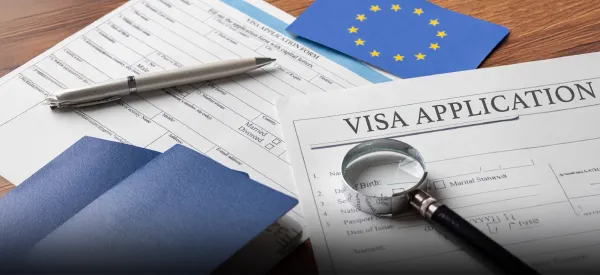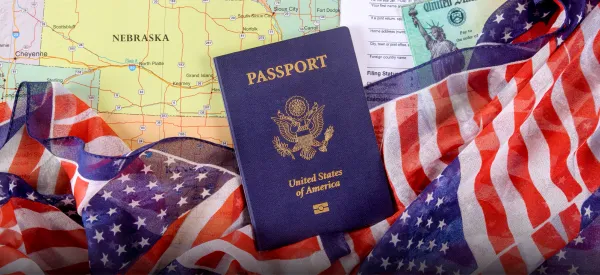Easy Travel to Europe: Tips for Currency Exchange

Daydreaming about your vacation is great, keep the excitement on, but amidst all this, there are numerous things to consider when travelling abroad. From taking care of all your documents to exchanging currency, to contemplating the local culture of the place. For US citizens, travelling to Europe is quite easy with visa-free entries and great connectivity. Even the currencies do not have a major difference when compared. Yet, one needs to be particular about a few things regarding currency exchange in Europe.
Top 4 Quick Tips to Handle Currency Exchange-
- Know all the European currencies
- Avoid exchanging currency at Exchange Kiosks (Airport, Railway Stations or Malls)
- Get cards that charge no foreign transaction fees
- Convert some currency before your travel
To handle currency exchange in Europe, we have curated a list of cash and currency tips to make your trip seamless. Check it out!
Knowledge About Different Currencies
Knowledge is everything, so check out all the currencies that are accepted in the countries you will be visiting. Know what is accepted where, like in Switzerland, they accept Swiss Franc, in Sweden it is Krona, and in Italy it is Euros. Keep a note of the exchange rate and the difference between dollars and the respective currencies. It will help you keep a check on your budget.
Try to Avoid Exchanging Currency Via Kiosks
As easy as it seems, exchanging cash for the new currency from the exchange kiosks will make a hole in your pocket. Do not go and exchange your dollar bills, as the exchange rate is higher, and you will lose almost 5 to 10%. You will find many exchange kiosks at major railway stations or airports, but it is suggested that you should avoid cash exchange unless it's an emergency.

Three Best Ways to Exchange Money in Europe
Use ATM machines to withdraw cash, and better use debit cards to get a good exchange rate. Avoid using standalone machines; rather, go to bank-affiliated ATMs. - The easiest way to pay in Europe is through Credit Cards. They are widely accepted across the continent, and you won’t be charged any extra transaction fees.- In case you need money, choose to go to Banks for currency exchange. They give better exchange rates without making you feel the burden of high fees.

Use a fee-free travel debit card to withdraw cash from bank-affiliated ATMs in Europe. These cards often give you real exchange rates and refund ATM fees, saving you money compared to traditional bank cards.
Get Some Currency Before Travel
You might think that you will stop by the airport after landing to get the European currency, but it is recommended to at least get some amount right before travelling. You never know how long it will take for the immigration process, and the intensely high rates on airport money exchange kiosks. It is better to have some currency in your hand for any situation. To order currency in the US, you can contact your bank or credit union, ask for the exchange rate, and voila, if everything seems okay, you can arrange for pickup or delivery.
Do Not Worry About the Currency Conversion
Well, vacations are for enjoyment and letting loose, try not to stress over conversions every now and then. Europe has paper money as well as different coins - just keep them and do not stop your enjoyment.

The Europe trip is sorted, the currency exchange and plans are sorted, let TriWize help you sort your flight bookings. It is the best flight booking website to get great offers and deals to fly to Europe. Fly with TriWize, fly in comfort.
FAQs
- Can the exchange rate vary at different exchange kiosks?
Yes, there are different exchange kiosks of different companies, and the exchange fees can vary according to their policies and terms. Airport and railway station kiosks can also have different rates.
- Do all places accept payment via credit card?
Mostly, you can use credit cards for payments all across Europe. From stations to hotels and cafes, to rental companies, credit cards are usually accepted. But, it is recommended you keep a little cash with you, just in case, to avoid any hindrance.
- Is it better to use USD or local currency in Europe?
It is best to use the local currency in Europe rather than USD. Paying in USD often results in poor exchange rates and additional conversion fees from merchants or ATMs.
- Should I notify my bank before using my card in Europe?
It is a good idea to notify your bank before heading for international trips to avoid your card being blocked for suspicious activity. Also, ask about foreign transaction fees and international usage limits.
- Can I use digital wallets like Apple Pay or Google Pay in Europe?
Yes, most European countries widely accept digital wallets for payments in stores, restaurants, and transit systems. Just ensure your card is linked and supported in the region.



